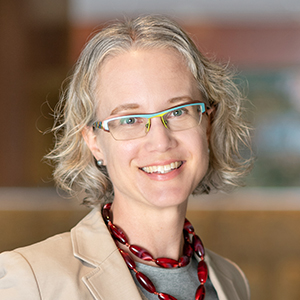It’s no surprise that economists rely on data to do their work. What is surprising are the great lengths that economists and other social scientists go to in order to get the right data to answer big questions. There are many examples from our Institute team alone. One researcher has painstakingly collected paper publications from hundreds of U.S. counties to create a new dataset on welfare programs and local public health care spending. Another has combed through a federal database built with information on incarcerated persons from years of state records. More than one of us has worked closely for years with a partnering agency or firm to confidentially analyze their records for insights on how their programs affect employees or clients.
These examples underscore the dedication and creativity getting the right data can require. But they also illustrate how obtaining the right data depends on human relationships. Assistants and archivists work together to digitize paper reports from a half-century ago and ensure their safe return to the repository. Local officials work with their colleagues to report information to what may feel like a faceless database. And partner agencies and firms place their trust in researchers (backed up by data protection agreements) to use their information to construct credible analyses.
Our nation’s official statistics also depend on relationships. In this case, the most important relationship is with the public, since it is ultimately members of the public who have to share their information if researchers are to have reliable data. Some of our Institute economists experienced this firsthand when they contributed to a massive, volunteer-run data collection effort: the annual Point-in-Time counts of homeless and unhoused people. The PIT counts, as they are called, rely on cooperation between volunteers and people experiencing homelessness to produce data that help direct a year’s worth of funding for supportive services for this population. Participating in this effort helped Institute economist Andrew Goodman-Bacon better understand how to synthesize research around homelessness for the article “People need a place to live” in this issue.
You’ll be hearing more from the Institute in the coming months about the value of data. We’ve begun sharing new data on how income is distributed and evolves for Americans, an effort made possible by a research partnership with Census Bureau economists. We won’t be able to talk to individual respondents for that project, since it is built on millions of tax records. But we will keep in mind the individuals represented in the data as we make this resource available. We’re committed to making it as accessible as possible—for expert researchers, for decision-makers who need easy access to this information, and for individuals who might visit the website to see what stories the data have to tell. We’re excited to share more about this new resource in the future.
In closing, I want to acknowledge the passing earlier this year of a longtime advisor to the Institute and the Minneapolis Fed, Bill Spriggs. One of the statistics Bill often used as a teaching point for his fellow economists was that at most times, the unemployment rate among Black workers was the same as the unemployment rate among White workers without a high school degree. Bill reminded us that when our theories don’t explain the data well, it’s time to revisit those theories with a more critical eye. He’ll be greatly missed.
This article is featured in the Fall 2023 issue of For All, the magazine of the Opportunity & Inclusive Growth Institute
Abigail Wozniak is vice president and director of the Bank’s Opportunity & Inclusive Growth Institute.






